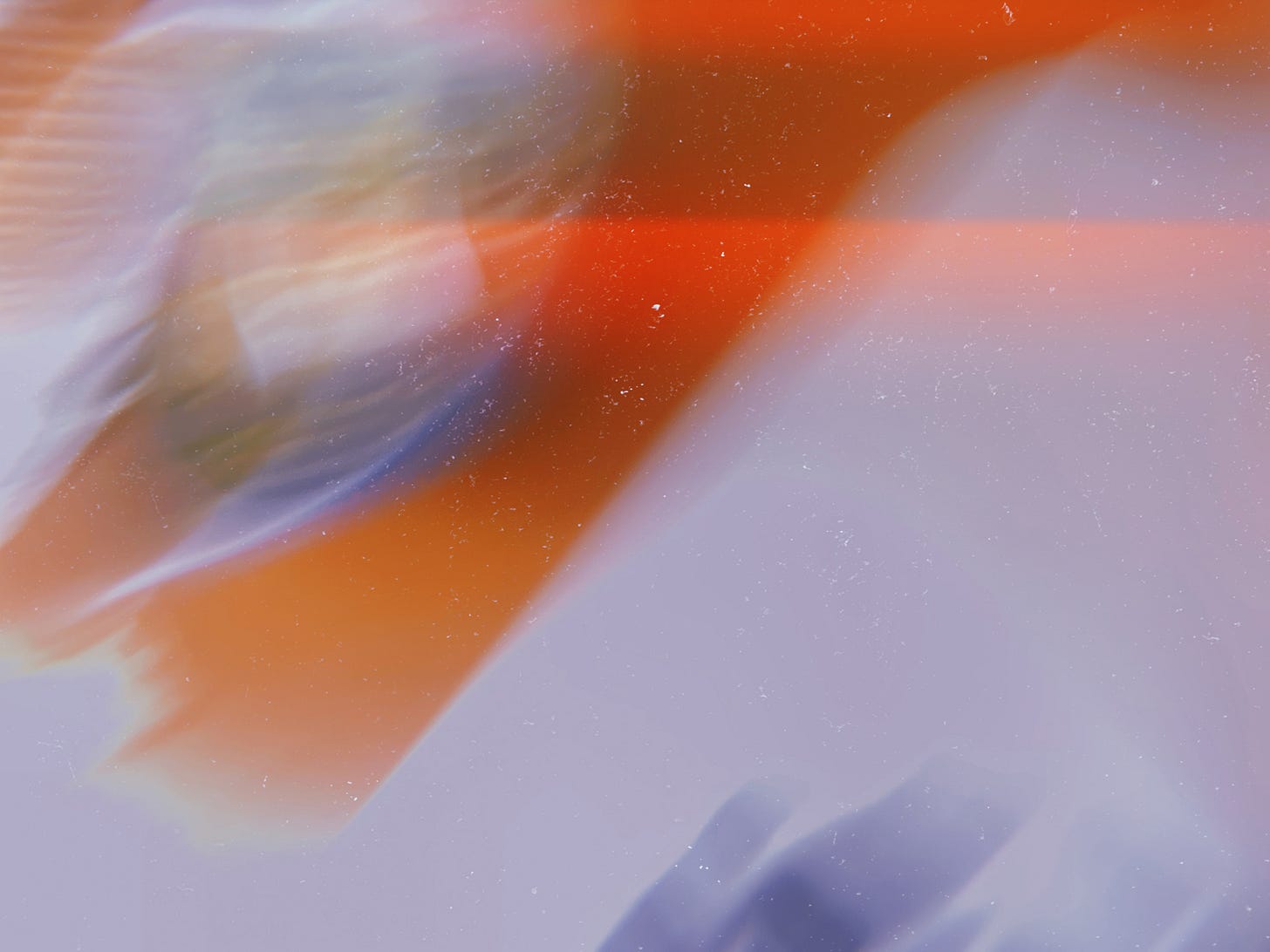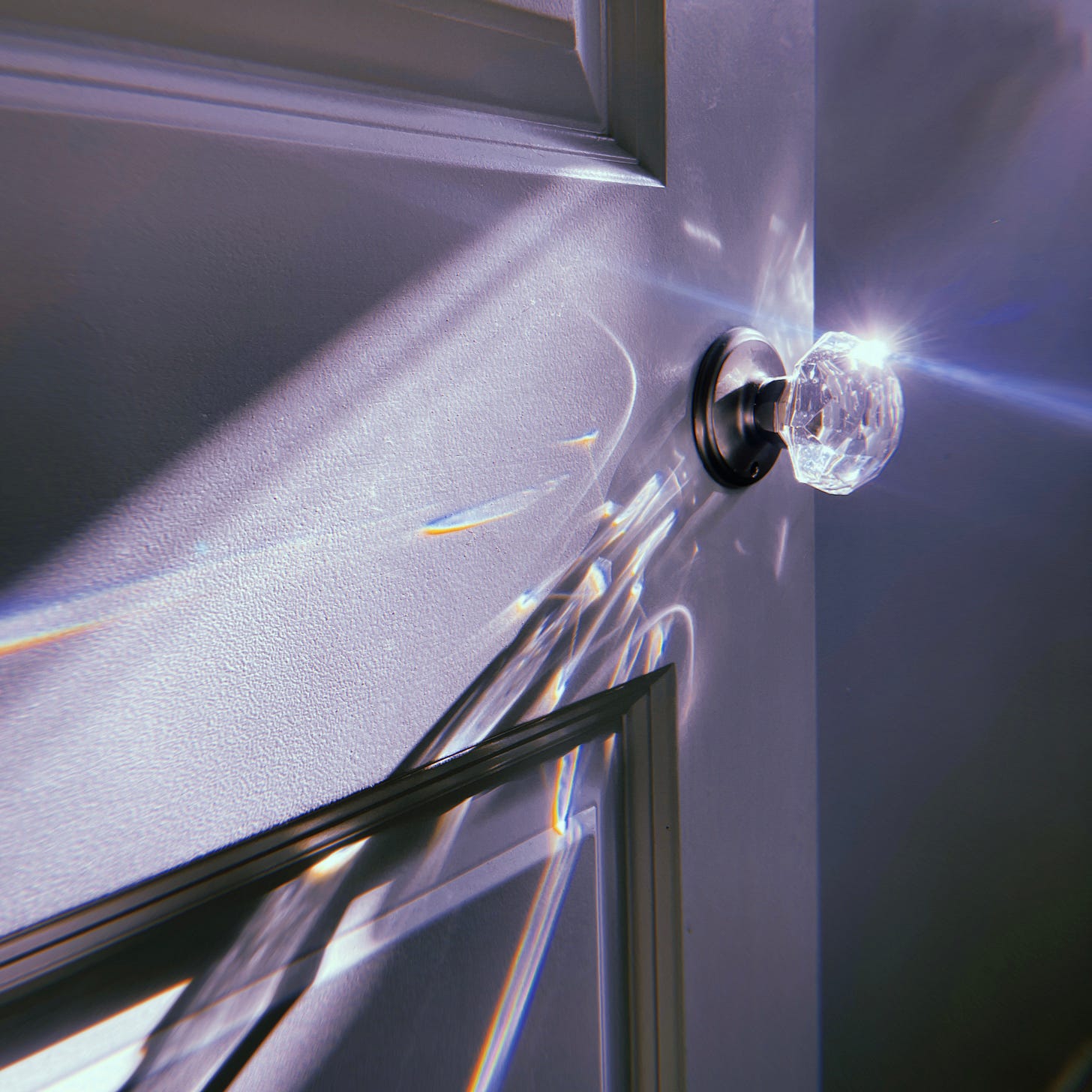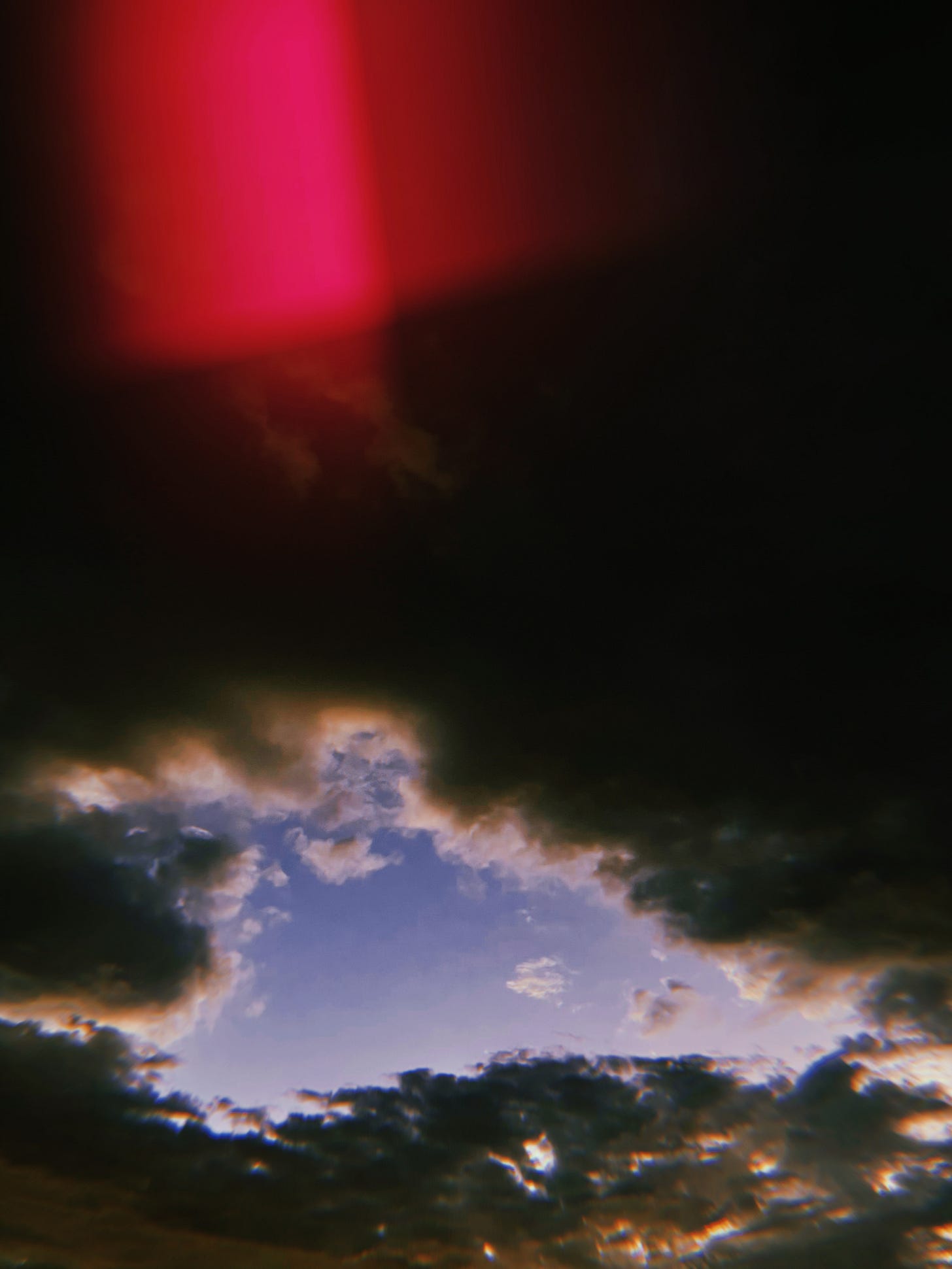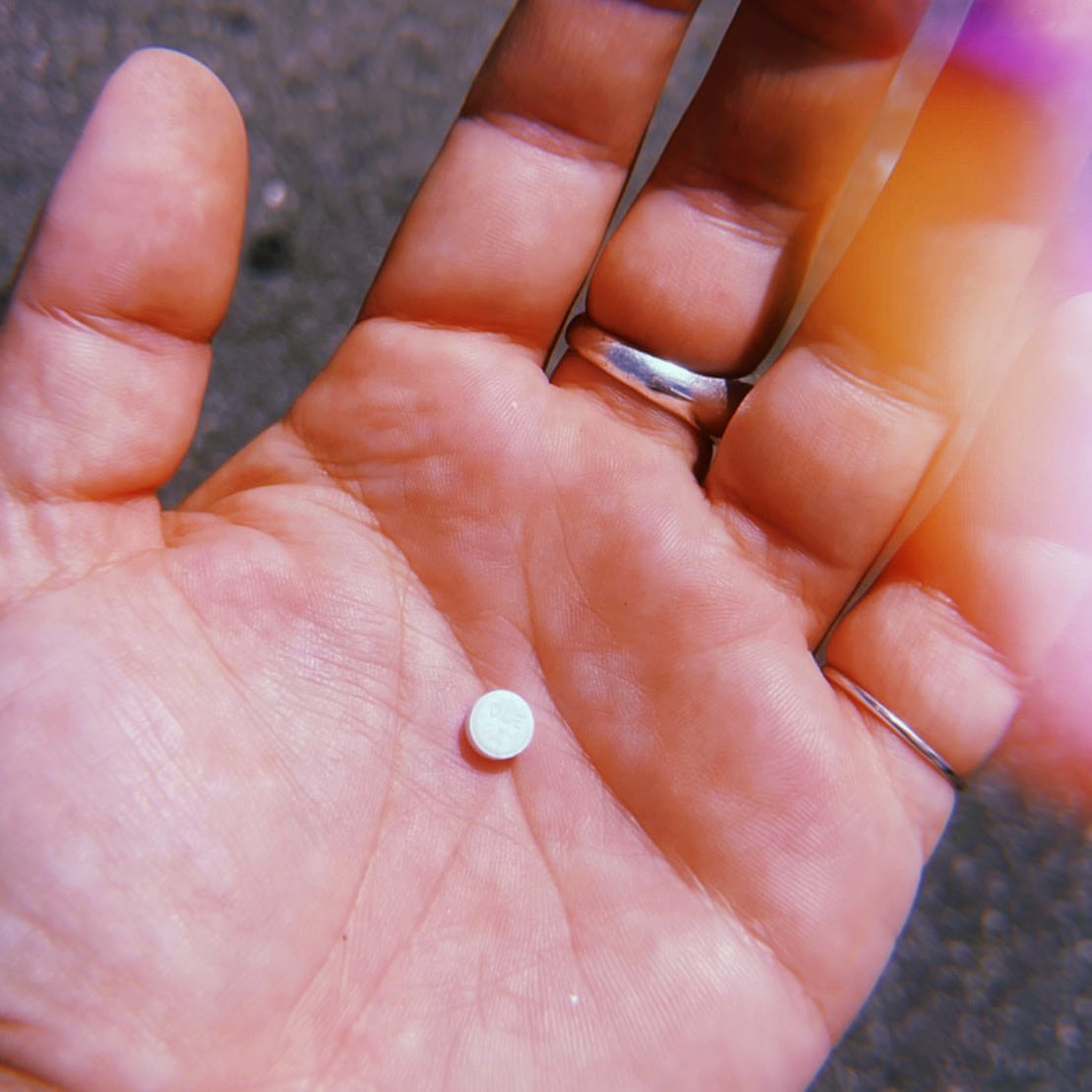Dear reader,
Before I begin I wanted to give a brief content warning. Today’s writing is a reflection on Attention Deficit Hyperactive Disorder, otherwise known as ADHD. My story is heavily focused on the state of my mental health leading up to my own diagnosis and therefore covers some sensitive themes including depression and suicidal ideation.
ADHD is a heavily misunderstood neurodevelopmental disorder and its effects vary greatly depending on the individual. What I have written below is still just a sliver of my own experiences. As you take time to read a story that may be different from your own, my biggest hope is that your education on the topic wouldn’t stop here. I strongly believe our capacity to show care through loving action is directly related to the continual expansion of our understanding of what it means to be human. After these considerations, if you feel this story may benefit someone you know, please feel free to share.
It’s that time of year in Los Angeles when I throw on a pair of socks with my crocs and swap my morning iced matcha for hot tea. Indications of the changing season may be slight in this region, but everybody knows that when the parking lot at Trader Joe’s becomes occupied with pumpkins bursting from cardboard boxes—it’s Fall. I could not possibly convey to you the joy I feel towards this changing of the season. I needed this page turn and with a groundhog day filled Summer finally behind me, I feel like I can breathe again. It feels great to turn on the heat and feel a new kind of warmth on my skin outside of the blazing sun that wouldn’t quit.
Towards the end of Summer, I was officially diagnosed with ADHD and I made (what was for me at the time) a very difficult decision to go on medication. This was a diagnosis that I avoided for nearly 5 years. Half a decade was spent gaslighting myself, along with the looming fear that my self-diagnosis could be terribly wrong and that I really was just lazy or “crazy”.
When I finally started to come to terms with the possibility, I was filled with shame that prevented me from doing further research to try and understand more. At the time, my limited knowledge of the disorder was solely based on what I had witnessed in two of my siblings— both of whom had been diagnosed in their young adulthood. Their experiences were vastly different from one another, but in watching from a distance, I had gathered enough to see the pain and fallout that came from years of unmanaged symptoms which made me afraid to take a closer look at my own. I did not think it possible that three out of the four of us could all have ADHD, so imagine my shock one day, when I compared notes with my twin sister only to discover that she had it too.
Like many of us, I spent years assuming ADHD was just about not being able to sit still or focus for long periods of time. And because my symptoms looked so different from my siblings, the bouts of depression and chronic anxiety that plagued me into my early adulthood went unchecked for years.
At a glance, it may be easy for someone to relate to the experiences of an ADHDer, but what people don’t often understand is that a random occurrence for a neurotypical brain is an every-moment, everyday reality for someone with the disorder. While core symptoms may include inattention, hyperactivity, and impulsivity control, the issue of focus itself is often misunderstood. It’s not that they simply can’t focus, but rather they struggle to control what they focus on. At the same time, they have the ability to maintain an abnormally high level of attention on tasks they do find interesting, otherwise known as hyperfocus.
While I’m not here to give you the perfect summary of ADHD (I couldn’t even if I tried) this article covers a lot. I haven’t even touched on the topic of dopamine levels in the brain, working memory, and executive dysfunction. It took me nearly a year to begin processing the many components of this disorder and how it impacts my daily life and I am still connecting the dots. In many ways it has felt like real detective work, retracing my steps (literally and metaphorically speaking) to see myself, my actions, and my thought patterns clearly through the lens of ADHD.

I imagine that for some, the process of coming to terms with their diagnosis can provide a tremendous sense of relief. And while finally having language for why things have felt so challenging can certainly aid in making one feel less “crazy” and maybe even more in control, somehow, learning more about my own neurodiversity had an adverse effect on me. The internet is not exactly flooded with scientific journals hailing the “benefits” of ADHD. In the beginning, trying to reframe it as a superpower (as many people suggested to me) felt like a joke.
No one tells you how painful it can be to have the mirage of If I just worked harder, I could be great…completely shattered by the reality that it’s not simply an issue of willpower that is preventing you from accomplishing your most basic goals but rather the entire way your brain is wired.
Over time, my story became, “It doesn’t matter how hard I try, things will always be this hard and my efforts won’t ever be enough because this is just the way I am.”
As I began to reflect on past relationships and failed attempts at advancing my career I found myself in a state of shock and disbelief, flooded by grief. I was consumed with embarrassment for simple things like info dumping, talking too much, interrupting, continually losing objects, missing deadlines, being chronically late, zoning out, and forgetting important details or key events in my friends’ life that made it seem like I didn’t care. I never wanted to make excuses for my behavior, but I felt (retroactively) angry, and deeply misunderstood.
Historically, it has never been too difficult for me to find the silver lining in just about any given situation. I am a scrappy person who can make beauty out of very little. I’ve often described myself as an eternal optimist and feel proud of the tools I’ve gathered to not only manage but overcome seasons of depression, heartbreak, and loss. And still, I am human. My ability to endure does not make me immune to the shock of grief and loss of identity that has come with the awareness of my ADHD.
In hindsight, I have tried to understand the severity of my depression this past year within the wider context of the pandemic and the exhaustion that we have all faced from simply trying to survive if for no other reason but to cut myself some slack. Regardless, it was difficult for me to acknowledge just how dark my thoughts had become.
Over the Summer I witnessed my grief morph into a type of numbness I had never experienced before. I began to feel like a robot living in a bubble. My typical standard how-to-climb-out-of-depression-toolkit was not working like it used to. It hurt to be alone, it hurt to be with people. I didn’t know how to convey to those closest to me that I could no longer hear, see taste or touch the world around me. On several occasions though, I tried to declare the end of my depression by simply announcing that I had felt it pass due to moments of brief relief and clarity. Needless to say, just because you want something to be over, doesn’t make it so.
One day, my roommate left for three weeks, and in her absence and the subsequent silence that filled the apartment, I started to become more conscious of an internal tape that had been playing on repeat. Suddenly I had words to describe my desire and longing for silence. I do not think I would have known that it was time for me to say something had I not previously witnessed suicidal ideations in a partner years ago. As the volume increased, so did the internal sirens telling me it was officially time to seek out more help.
In the beginning, medication was never an option for me because I assumed that taking it would be a cop-out. It felt like a drastic solution that my “situation” did not warrant. I did not feel worthy of “outside” support and I assumed I could manage things all on my own if I just tried harder.
I was wrong.
When I tried to talk to friends about taking medication, it was hard to ignore their initial resistance and offhanded comments related to their observations of people they knew who took stimulants to cope with their ADHD. Their horror stories of medication gone wrong mixed with my own concerns only compounded my fears. I thought it would be impossible for me to find an affordable way to receive a diagnosis and that the process of trialing medication would be too much of a distraction from my day-to-day life. I thought the meds would make me feel manic.
I was wrong.
I thought the more information I gathered about other people’s experiences, the more at peace I would feel about trying it out for myself. I thought if I could guarantee that things would go smoothly for me, I wouldn’t be afraid to try.
I was wrong.
I was wrong about a lot of things, and it’s okay.
The biggest feeling alive for me right now is grief. The grief of a past life, a past understanding of self. Letting go of the familiarity of a chaotic mind that felt loud and untethered. Embracing the newness of a mind that feels quiet, more balanced, and more at ease with my surroundings. The first day I experienced the effects of my medication, I cried and asked my therapist, “Is this what normal people feel like?”
I am still getting to know this medicine. I am still learning to accept the fact that it is not a magic elixir. I have had to reexamine my relationship to productivity, knowing that even with my new tool, I am not a robot, I am not superhuman, and I am not unstoppable. I get tired, I get worn out. I still forget. I still get distracted.
Throughout this process, I have watched myself try to test the limits of what I am capable of. I have struggled to walk away from my desk, experiencing the high of finally being able to sit still and complete mundane tasks that previously felt impossible for me to tackle. I often feel overcome with the awareness of what is now possible for me, and for my life.
At the same time, I am finally able to separate out the parts of myself that are my ADHD and the parts of myself that are just…me. The parts that the medicine can help with, and the parts that it can’t. And though the process has at times felt all-consuming, I am beginning to see the magic of my neurodivergent mind.
I am slowly recognizing my gifts, my ability to problem solve, to see endless solutions and possibilities to life’s challenges, and to perceive time in a way that enables me to consider the unimaginable. My enthusiasm for what interests me catapults me into spaces where I have the capacity to feel profound empathy and passion. My sensitivity to sound, textures, and colors makes me an expert at interpreting my surroundings into beautiful art that has the power to transform the way people perceive themselves and this world. I have a deep capacity for love and those closest to me get to experience the fullness of who I am through my enthusiasm for life. My ideas are endless. My creativity is boundless. My inner compass is always pointing toward what is most exciting—I can turn anything into an adventure.
Every day I am connecting with more people who have ADHD and it has been the number one thing to help dissolve my shame.
I look at my friends and see how their unique way of moving through this world illuminates the beauty around me and I feel transformed. It is healing to be in conversation with other neurodivergent people who are open about their experiences as I see my own non-linear ways of thinking and expressing being reflected back to me.
Every day I find new ways of unlocking the potential of my mind. When I remember the goal is not one of efficiency or usefulness but of allowance and freedom—my possibilities feel endless. When I have an off day, I am learning to laugh at myself, my mistakes, and things that were previously covered by relentless self-criticism. It may not be easy, but it’s certainly never boring.
The pill I take most days is not a magic bullet.
It hasn’t completely erased the pain I feel, the grief I still am processing. It does not turn me into a machine that can perform at high speeds without making mistakes. It doesn’t tell me what to do or when to do it. It can’t make creative decisions for me and it can’t always help me remember where the fuck I put my keys. But somehow, this tiny pill makes all the difference in my world. It’s a laser that if aimed correctly, will land on my chosen target…most of the time.
Above all else, it has been a tonic of hope and ease. I still have to eat, sleep, and drink even MORE water. I have to do all of the things I’ve always done to maintain this body and mind but frankly—I want to be alive. It feels strange to make it about that because I’m not on anti-anxiety medication or taking an SSRI, but as it turns out, anxiety and depression are major symptoms of undiagnosed/untreated ADHD, and one of the main reasons why it can take some people decades to recognize it within themselves. Though I recognize medication is not the route for everyone, it was the best thing I’ve ever had the courage to try.
Even though I am still dealing with the fallout of a year spent mostly clinically depressed, my hope for the future is 10/10 and that feels like something worth celebrating.
This year has humbled me beyond measure. I have had to ask for help in ways I never thought I would need to. Being so low has exposed me to new depths of vulnerability I never thought I’d face.
I have had to practice asking for support repeatedly, recognizing that not everyone in my life will be able to help, understand me, or see me clearly. I have had to practice forgiveness- towards myself for the ways I have inadvertently caused harm to myself and others. I have had to practice letting go of friendships and not take personally the ones who have let go of me. I practice surrendering the judgments of others and rest easy in the arms of those who do see me.
I am learning to no longer shield my dark parts. To give up pretending as though I am constantly in a state of growth and self-improvement. To give up the myth of arrival, the myth of normal. To let go of the fantasy of having it all figured out by now. To let go of the shame of not being better at certain things. To let go of my attachments to where I thought I should be by now. I am either gloriously behind or right on time.
As I embrace a beginner's mind I open myself up to an entirely new way of being. I open myself up to love. I open myself up to being happy.
In many ways, it feels like my life is just starting. I am no longer afraid to ask for money, grace, or space — or at the very least I am learning to coexist with that fear as I enter into the flow of generosity and practice asking for what I need.
I am working hard to not work so hard—to undo the external messages that said I just needed to put in more work, more time, and more focus in order to be better. Hustle culture can go to hell, productivity is no longer my god.
I don’t know what the future holds. I don’t know if I’ll always be on medication.
It is not a goal for me to get off of medication, it is not a goal of mine to say on it.
My goal is to live and live well.
It is not complete it is not finished it is not solved it is not fixed.
But I am not something to complete, fix or solve. I am a PERSON who is still in the early stages of figuring out how to be human. This stage may last a lifetime, and I’m learning to be okay with that too.











